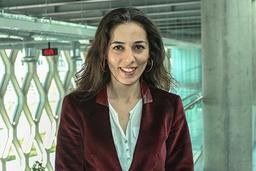| Dr. Ozge Akbulut (Sabancı University) |
| Fri 23 Oct 2015, 12:45 - 14:00 |
| Conference Room 1:03, SMC, Alexander Crum Brown Road |
If you have a question about this talk, please contact: Jonathan Terry (jgt)

Pizza at 12:45, Talk starts at 13:00
Control of rheological properties of ceramic suspensions is crucial for applications requiring high solid loadings along with flowability/ workability such as processing of cement and slip casting of ceramics. Polymers that can impart steric hindrance and electrostatic repulsion to ceramic particles in suspension are utilized to modify the flow properties of these suspensions. This talk will present the design parameters of poly(carboxylate ether)-based grafted copolymers to stabilize ceramic suspensions while discussing processing of alumina, before focusing on rheological behaviour of a high performance cement, calcium aluminate cement (CAC), which offers rapid hardening and resistance against chemical attacks, high temperatures, and high impact. The performance of these polymers in replacing ordinary Portland cement (OPC) with calcined clay will be described, which supports the world-wide effort to reduce carbon dioxide emissions due to processing of cement. Finally a brief demonstration will be given of a synthetic surgical training platform that provides realistic responses to surgical interventions. Lack of cadavers and fresh tissue/organ models hinders the quality of medical education; therefore, there is a need for a reliable and sustainable training medium for medical students and personnel. Silicone-based composite materials, such as breast, skin, and vascular models have been engineered to simulate the mechanical responses of organs to suturing, incision, and dissection.


